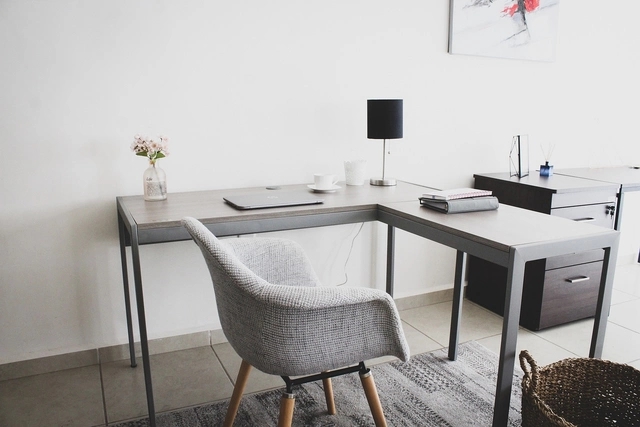Top 10 Ways to Stay Productive While Working from Home
Working from home offers flexibility, but it can also present challenges in maintaining productivity. These top 10 tips will help you stay focused and efficient while working remotely.

1. Create a Dedicated Workspace
Having a specific area in your home designated solely for work can significantly enhance your focus and productivity. A dedicated workspace helps you establish a clear boundary between your professional and personal life, making it easier to switch into 'work mode' when needed. Choose a quiet, comfortable space with minimal distractions, ensuring it is well-organized and equipped with everything you need to perform your job efficiently. Over time, your mind will associate this space with work, helping you maintain a consistent and productive routine.
2. Set a Routine
Establishing a daily routine is crucial for staying productive when working from home. Without the structure of a traditional office environment, it can be easy to lose track of time or let your workday bleed into personal time. By setting specific work hours, scheduling regular breaks, and maintaining a consistent daily schedule, you can create a rhythm that keeps you focused and motivated. A well-defined routine not only helps you manage your time more effectively but also reduces stress by providing a clear framework for your day.
3. Dress for Success
While working from home often allows for more casual attire, dressing as if you were going to the office can have a positive impact on your productivity. Wearing professional clothing, even if only partially, can shift your mindset from relaxation to work, making you feel more prepared and motivated to tackle the tasks at hand. This psychological shift can help reinforce the boundary between work and personal life, ensuring that you're in the right frame of mind to be productive and focused during your work hours.
4. Minimize Distractions
Distractions are one of the biggest challenges when working from home, where the environment is often filled with potential interruptions. Identifying these distractions—whether they are digital notifications, household chores, or family members—and taking proactive steps to minimize them is essential for maintaining productivity. Techniques such as turning off non-essential notifications, setting boundaries with those you live with, or using noise-cancelling headphones can help create a more focused work environment, allowing you to concentrate fully on your tasks.
5. Use a Task Management System
Staying organized is key to being productive while working remotely, and using a task management system can be a great way to achieve this. Tools like Trello, Asana, or even a simple to-do list can help you keep track of your projects and daily tasks. By breaking down larger projects into manageable steps and prioritizing your tasks, you can ensure that you stay on top of your workload and meet your deadlines. A task management system also provides a sense of accomplishment as you check off completed tasks, helping to keep you motivated throughout the day.
6. Take Regular Breaks
Taking regular breaks is essential for maintaining high levels of productivity and avoiding burnout, especially when working from home. Extended periods of continuous work can lead to mental fatigue, reducing your efficiency and creativity. By incorporating short breaks into your workday—whether through techniques like the Pomodoro Technique or simply by stepping away from your desk periodically—you can recharge your mind and return to your tasks with renewed focus. Breaks are also an opportunity to stretch, hydrate, and give your eyes a rest from screen time, contributing to overall well-being.
7. Stay Connected
Working from home can be isolating, but staying connected with colleagues is important for maintaining morale, collaboration, and a sense of team spirit. Regular communication through video calls, instant messaging, or virtual meetings helps ensure that everyone is on the same page and fosters a collaborative environment, even from a distance. Staying connected also provides opportunities for social interaction, which can reduce feelings of isolation and keep you engaged with your work. Make an effort to reach out regularly and participate in virtual team activities or discussions.
8. Set Boundaries
Setting clear boundaries between your work and personal life is crucial when working from home. Without these boundaries, it can be challenging to avoid interruptions or prevent work from spilling over into your personal time. Communicate your work hours to family members or housemates and make it clear when you are unavailable. This helps to reduce distractions and allows you to maintain a more productive work environment. Additionally, setting boundaries for yourself, such as not checking work emails after hours, can help you achieve a better work-life balance.
9. Stay Active
Incorporating physical activity into your day is essential for maintaining energy levels and focus while working from home. Regular exercise, even in small doses, can boost your mood, improve concentration, and reduce stress. Whether it's taking a walk, doing a quick workout, or practicing yoga during breaks, staying active helps you stay energized throughout the day. Physical activity also helps to counteract the sedentary nature of remote work, promoting better health and preventing the physical strain that can come from long periods of sitting.
10. Reflect and Adjust
To stay productive while working from home, it's important to regularly reflect on your routines and strategies and be willing to make adjustments as needed. What works one week might not work the next, and being flexible in your approach can help you adapt to changing circumstances. Take time to assess what is and isn’t working in your current setup, and make changes that can improve your productivity. Continuous improvement is key to long-term success in a remote work environment, so don't be afraid to experiment and refine your approach over time.
keywords: Productivity; Remote work; Work from home tips.